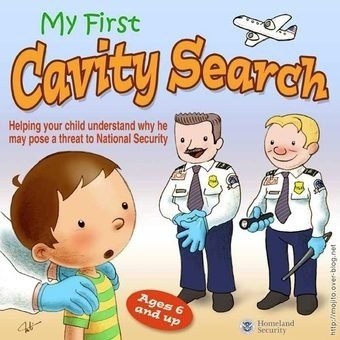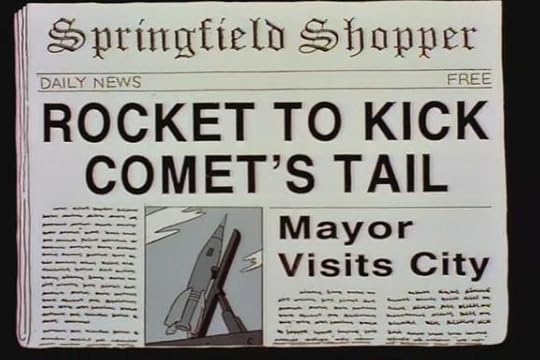Christopher Farnsworth's Blog, page 18
December 9, 2010
The Smell Of Giddiness
 * Neil Gaiman linked to a blog post I wrote. Now all I've got left on the list is 1) Snort the ashes of silver age comic books with Grant Morrison, 2) Watch Warren Ellis feed the horde of fetish-masked Internet minions he keeps in his basement, and 3) Invoke the wrath of Alan Moore.
* Neil Gaiman linked to a blog post I wrote. Now all I've got left on the list is 1) Snort the ashes of silver age comic books with Grant Morrison, 2) Watch Warren Ellis feed the horde of fetish-masked Internet minions he keeps in his basement, and 3) Invoke the wrath of Alan Moore.
I'd like to be cooler about this — more like, "Yo, Neil. 'Sup?" — but that's clearly not going to happen. It's a problem I have. I've interviewed billionaires, gang-bangers, murderers and Neo-Nazis. I've been within restraining-order distance of many celebs. None of that caused my heart rate to go above 60 BPM. And yet, I piddle myself like an overexcited puppy when it comes to people whose work has had an impact on my life. (Seriously, I'm still embarrassed about how fanboy I went when I got to talk about "The Great Darkness Saga" with Paul Levitz.)
Fortunately, the people I have met — Charlie Huston, David Mamet, Beau Smith, Mark Waid and some others — have all been very gracious about my hopping around them like a labrador about to go for a walk.
* Speaking of friends and well-wishers, my very funny friend Mayrav has a new column up.
* Amazon now gives authors BookScan sales info. Because we didn't spend enough time constantly checking our sales rank before.
* Dirk Gently coming to TV. Hopefully, we won't have to wait too long for this to migrate to the U.S.
* Randy Michaels, the former CEO of Tribune Co. who resigned after complaints of creating a frat-house atmosphere at the L.A. Times' parent company (and not, we repeat, not for his gruesome incompetence), wiped his hard drive on his way out the door. Thoughtful of him.
* Robert McCammon's The Wolf's Hour, which obviously had a very big influence on me and the genesis of Blood Oath, is now available in a special illustrated edition.
* Oh, and for those looking for the regular dose of nerd content: THUNDER Agents. It's awesome. You should read it.








December 8, 2010
Broken City: Cairo
There's a post on Cairo, Illinois on BoingBoing this morning, which led to some fascinating reading about how the city basically died, and how some punks tried to bring it back to life.
All I knew about Cairo was a couple half-remembered facts from college (history major) and the dark, brooding scene set in the town in Neil Gaiman's American Gods. Other than that, zip.
It turns out Cairo is one of many broken cities in the great interior of the U.S., a hollowed-out shell of a place where people seem to be hanging on more by habit than anything else. This is becoming all too common (see: Methland) as industries abandon the heartland for cheap wages overseas, army bases and defense plants are closed, and agriculture becomes increasingly concentrated into the hands of a few corporate owners.
Cairo had another problem, however: evil. Cairo was broken as much by racism as it was by economics.
A group of punks took advantage of the rock-bottom price of real estate in Cairo, and has started a coffeehouse/bookstore there. They hoped to attract others, who will make their living off their Internet stores and occasional band tours, bringing money back into a town that desperately needs it.
It didn't work. They're trying to sell the place now, but they'll reduce the price for anyone willing to keep the effort going.
It sounds a lot like the time my college friends and I rented a run-down house our senior year with the hope of renovating it and turning it into our own Bohemian version of Walden. It ended with one of us in a mental institution — no shit — but in spite of all that, I still think the idea is sound.
Places like Cairo could be test labs for a new way of living. Instead of heading to the big cities upon graduation, all those lost Gen Y types might look to this as another model. Almost nobody in his twenties can afford to buy a house or apartment in LA or NYC, and the great mortgage clusterfuck has destroyed the chances of home ownership in most other places, too. Even rent is out of the question for a lot of people. But all over the country are these pockets of abandoned urbanism. It will take a lot of hours to rebuild the decayed infrastructure, but when you're 26, what do you have besides time on your hands?
As long as they have a broadband connection and access to lots of Time-Life DIY books, it's possible that a whole generation could find homes in places like Cairo.
Yeah, I know. Probably not. But it has to beat living with your mom.








December 6, 2010
Red Mercury Rising
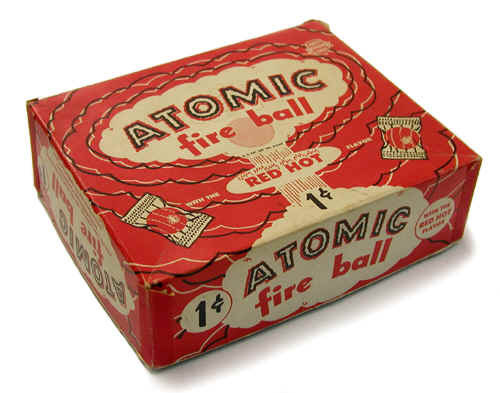 Thanks to my friend Steve Lynch, I've got a piece in the Sunday New York Post about red mercury, a semi-mythical substance that's either a way to make H-Bombs the size of hand grenades, or a cure for impotence.
Thanks to my friend Steve Lynch, I've got a piece in the Sunday New York Post about red mercury, a semi-mythical substance that's either a way to make H-Bombs the size of hand grenades, or a cure for impotence.
Doomsday weapon or herbal Viagra, the truth about red mercury hides in a tangle of rumor and speculation so twisted it makes the plot of "Lost" look straightforward. The apocalyptic goo has haunted us since the end of the Cold War, despite the fact that no one has ever proven it can actually do anything.
As tangled as the mythology is, red mercury had one big supporter to give it credibility: Samuel T. Cohen, the man who invented the neutron bomb. Cohen — who titled his memoir, Fuck You, Mr. President — died in Los Angeles two weeks ago.
I didn't get to put most of what I learned about him in the piece due to space limitations, but according to those who knew him, he was truly a fascinating man. One of the physicists who helped build the A-Bomb at Los Alamos, Cohen dedicated much of his life to the idea that the right weapon could limit war rather than prolong it.
The neutron bomb was Cohen's solution to the stalemate of the Cold War. Looking at the Soviets' overwhelming superiority on the ground in Europe, Cohen designed the neutron bomb to limit the damage in the aftermath of an invasion. A small warhead designed to be detonated above a battlefield, it saturated living things with lethal doses of radiation while leaving buildings and vehicles intact.
For his efforts, Cohen received a peace medal from Pope John Paul I – and vilification from nearly everyone else. Politicians feared it would escalate the arms race. No less than Nikita Kruschev called it a "capitalist weapon" for sparing real estate but killing people.
He believed his creation was "the most moral weapon ever invented," despite the nearly universal horror it evoked. And in some way, I do understand his confusion at the reaction the neutron bomb received. Blowing human beings to ash with regular nuclear weapons, or burning them with napalm, or shattering their skulls with shrapnel — surely all of that should be just as repulsive as killing them with gamma rays.
Almost nobody else saw it that way. Although President Ronald Reagan ordered 700 of the bombs built, they were never made part of the U.S. military arsenal and were dismantled after the collapse of the Soviet Union.
By the end of his life, Cohen had more or less given up on the idea of saving the world. He believed the only hope was for all nations to become so broke they wouldn't have the cash to fight wars.
Which, come to think of it, would be an interesting side effect of the financial crisis if it ever came to that.
But while Cohen was a few orders of magnitude smarter than I am, I just don't think it would work. Despite — or because of — the Great Depression, we still had World War II. In prosperity or poverty, we always seem to have enough money to buy bombs.
What's even more puzzling about Cohen's obsession with red mercury is that it doesn't even matter if the stuff actually exists. As one of the nuclear scientists I spoke to, Dr. Frank Barnaby, told me, there's no way we can realistically stop more people from getting nuclear weapons. In the future, pretty much every nation will have access to the technology. In terms of sheer probability, it's ludicrous to think that terrorists will not get their hands on a nuke.
While that's not a very cheery thought for a Monday morning, it does make me wonder why Cohen fought so hard to warn people. Maybe he was just trying to give us something we could handle. Maybe by sounding the alarm over red mercury, he hoped we'd pay attention to the real threats that are already out there.








December 3, 2010
Chappy Chanukah
November 30, 2010
Where "The Simpsons" Went So Very, Very Wrong

I am a fan of "The Simpsons" in the way the severely mentally ill are fans of anti-psychotics. Which is to say, it's less a TV show than the thing that keeps the bad voices at bay for me.
All this week they're doing "Classic Simpsons Week" at Splitsider, and it's a perfect excuse for me to indulge my neurosis.
Even though "The Simpsons" has gone downhill in the past decade or so, I still keep injecting the episodes through my eyeballs into my brain. And there are bright spots that cause me to actually Laugh Out Loud, as opposed to just typing the acronym.
But if there's a moment the show jumped the shark — if I had to name just one — I'd go with "The Principal and The Pauper." The second episode of Season Nine, it was the first Simpsons ep to crumple all the accumulated love and goodwill of the show and toss it in the trash for the sake of a not-very-funny joke.
Harry Shearer, who voices Seymour Skinner (and many other characters), has said he didn't know what the hell the writers were thinking when they decided Skinner wasn't actually Skinner, but someone named Armin Tamzerian. Many fans agree. Showrunners Bill Oakley and Josh Weinstein defended the episode as "an experiment," and have said that it's not really meant to be taken as canon.
There's an argument to be made about what constitutes the "real" continuity of the fictional lives of a bunch of cartoon characters, but frankly, it's the effect on the franchise itself that's more interesting to me.
Todd VanDerWerff of the Onion has a great essay on the two types of sitcoms: the anything-for-a-laugh sitcom, which uses the characters as joke delivery vehicles, with little or no concern for their long-term development; and the character-driven sitcom, which tries for laughs based on the people and the stories rising from their cramped little worlds. Think of it like this: Type 1 is "30 Rock." Type 2 is "Community." (That's at the high end, of course.)
Up until "Principal, "The Simpsons" was a Type 2 sitcom. Even as surreal as it could get — the man falling off the bridge while in line for Itchy and Scratchy: The Movie who screams "I regret nothing!" on his way down – I'd argue its core was always the interactions between the family members. This provided some of the best laughs, but also the genuinely touching moments.
Then, with "Principal," the show shifted gears into a Type 1 show with such a lurch that its transmission was left in pieces all over the asphalt.
Whatever the intention behind the episode, it broke the show. After "Principal," the series was a Type 1 sitcom — and that's something that just does not have the same kind of vital, beating heart as character-based fiction to me. Any interplay between Homer, Marge, Bart, Lisa and Maggie is just another gimmick now. It's nothing that arises from a sense of them as a family. It's simply what needs to be done to wrap up the plots and jokes in time for the credits.
You can go from a Type 2 to a Type 1 sitcom; it happened after too many seasons on "Cheers." But once you break the heart of the story like that, you cannot go back to being Type 2. It would be like Charlie Sheen's character suddenly asking his mother why she never loved him on Two and a Half Men.
I watch Type 1 sitcoms the same way I read plot-driven novels or watch special-effects tentpole movies — to see what happens. I rarely ever watch them again, because once that question is answered, there's no reason to go back for more.
But with shows like "Firefly," "Sports Night" and "Venture Bros.," I replay them again and again, and not just because I missed some of the jokes while I was laughing. I catch new stuff, see scenes in new ways and discover little hidden meanings in the margins.
Yeah. I need to get out more.
But look back to "The Simpsons" 100th episode and you'll see what I mean. Another Skinner-centric story, "Sweet Seymour Skinner's Baadasssss Song" — written by Oakley and Weinstein, by the way — shows the principal getting fired from his job due to Bart's dog getting loose in the school's ventilation system. He and Bart actually become friends in the outside world. Of course, everything has to go back to normal at the end of the ep, but it's not done in the ham-fisted, meta-commentary way of "Principal." Instead, Bart places a "kick me" sign on Skinner's back when the two hug after Skinner resumes his job. And Skinner puts a sign on Bart that says "teach me." It's an undeniably sweet moment.
And it's one that the show could never pull off today.
I still love "The Simpsons." But it's never going to feel like that again.








November 29, 2010
Comedy is hard.
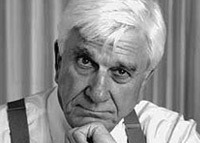 I met Leslie Nielsen once. It remains one of the high points of my so-called journalistic career.
I met Leslie Nielsen once. It remains one of the high points of my so-called journalistic career.
This was back when I was a wee smartass reporter in Boise, working for an alt-weekly with more guts than smarts or money. Nielsen was in town to promote and perform his one-man show about Clarence Darrow, the attorney who represented the people nobody else wanted to touch — labor leaders, murderers and accused bombers.
Nielsen chose Boise as one of the venues because that was where Darrow first came to national prominence defending notorious labor leader "Big Bill" Haywood. The play was going to be performed at the old Idaho Penitentiary, which was where Haywood was held during the trial.
Nielsen even stayed at the Idanha, the same hotel where Darrow set up camp — despite the fact that the Idanha had barely done any renovations since Darrow slept there.
He was a very gracious and kind interview. Darrow was a hero of his — one of mine, too — and he didn't even flinch when my editor burst into the room wearing two pairs of sunglasses, then dramatically whipped one pair off.
"Actually, that was Robert Stack," he said with that perfect deadpan stare.
Nielsen started as a dramatic actor, but he never seemed to look at his transition to comedy as a step down despite so many people asking him that question. Because it wasn't. Look at the huge number of gifted dramatic actors who cannot deliver a punchline to save their lives. Nielsen was able to play the ridiculous in such a way that made it seem real. There was no sense of him slumming, or faking his way through a performance. That's what made it really funny. You believed that he believed the lines, no matter how absurd.
I can't quote him directly, but here's my best paraphrase: never insult your material by assuming you're too good for it. Give it your best, every time.
It's an important lesson. I'm glad I got to meet him.








November 17, 2010
Whole Lotta Wednesday Going On
* TSA: Total Sexual Assault. The TSA's new scanners and groping policy have inspired T-shirts and a backlash from travelers. Now one blogger says she was sexually assaulted by a TSA inspector. Bonus: Israeli security expert says, "I can overcome the body scanners with enough explosives to bring down a Boeing 747."
* I have great agents. No, really. I'll say that even when they're working for other people: "Machinist Closes Major 3-Book Debut Deal" and "Fox 200 Buys Hot Dystopian Novel"
* Freshman congressman breaks the land-speed record for hypocrisy: wants to know why he doesn't immediately have government health care after running against government health care.
* Speaking of douchebag politicians, a councilman called the cops on two kids selling homemade cupcakes. When people say they hate the government, this is what they mean.
* Matt Taibbi looks at the foreclosure process. Surprise: it's just as messed up as everything else about the economic meltdown.
We ponied up billions to help Wells Fargo buy Wachovia, paid Bank of America to buy Merrill Lynch, and watched as the Fed opened up special facilities to buy up the assets in defective mortgage trusts at inflated prices. And after all that effort by the state to buy back these phony assets so the thieves could all stay in business and keep their bonuses, what did the banks do? They put their foot on the foreclosure gas pedal and stepped up the effort to kick people out of their homes as fast as possible, before the world caught on to how these loans were made in the first place.
* Interview with Christopher Hitchens as he continues to battle cancer, glass of whisky in hand. My favorite line: "Not for the first time, I feel a twinge of pity for that tumour. Does it realise what it's up against?"
* If you haven't read this story about a little girl killed in a police raid gone wrong in Detroit, you really need to.
"You might say that the homicide of Aiyana is the natural conclusion to the disease from which she suffered," Schmidt told me.
"What disease was that?" I asked.
"The psychopathology of growing up in Detroit," he said. "Some people are doomed from birth because their environment is so toxic."








November 12, 2010
Bankrupt
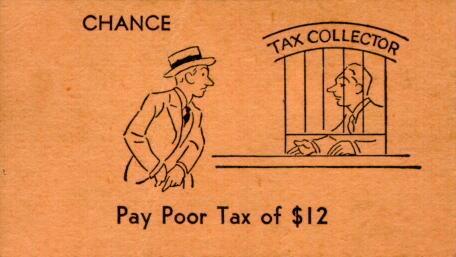 When I was back east for the holidays last year, we took the usual trip through Philly on our way to see the Doting Grammy. As we passed near the abandoned industrial zone, with the skyscrapers in the distance, I kept thinking I was traveling through the remains of a lost civilization — as if we are a tribe inhabiting the ruins of an older, more advanced culture. The strip clubs and strip malls, condos and wine bars, all living, like hermit crabs, in the shells of something bigger and long dead.
When I was back east for the holidays last year, we took the usual trip through Philly on our way to see the Doting Grammy. As we passed near the abandoned industrial zone, with the skyscrapers in the distance, I kept thinking I was traveling through the remains of a lost civilization — as if we are a tribe inhabiting the ruins of an older, more advanced culture. The strip clubs and strip malls, condos and wine bars, all living, like hermit crabs, in the shells of something bigger and long dead.
We were under the massive span of the Benjamin Franklin bridge when I felt this staggering sense of loss. I realized I couldn't imagine anyone building anything like this in the United States today. The idea of public works — especially a huge investment like this one — has become a relic of a different time. (Think of the amount of time, money and effort it has taken for basic improvements to existing infrastructure, like the Big Dig.)
I thought about that scene a lot while reading Matt Taibbi's Griftopia: Bubble Machines, Vampire Squid, And The Long Con That is Breaking America. The fact is, we are simply not the country that built those bridges, or the interstate highways, or created a massive industrial complex to fight World War II, and the proof is on every page. If you have any interest in finding out just how badly and repeatedly we all got screwed in the financial meltdown, then you have to read this book.
In 2009, Taibbi took his first in-depth look at the collapse of the economy with an article about Goldman Sachs, famously calling it a "vampire squid" stuck to the face of humanity. It kicked up a lot of dust, and he began looking deeper into the causes of the crisis. The result is Griftopia.
Griftopia expands on that first article, with side trips into the enablers of the greed-is-good ethos (Alan Greenspan, whom Taibbi calls "the biggest asshole in the universe") and commodities trading (the first time I've ever been moved to any kind of emotion by the idea of trading corn futures). In each chapter, he nails down the ways in which our economy has turned into a Ponzi scheme. We've been sold complete bullshit for years, and Taibbi, God love him, is not afraid to say so.
(Goldman Sachs, meanwhile, has plenty of money to soothe its hurt feelings. Despite requiring $5.5 billion of taxpayer money in 2008 (and $12.9 billion in bailouts from the collapse of AIG), the bank posted $1.9 billion in profits in the past three months alone.)
Those expecting a left-wing polemic are going to be disappointed, however. Taibbi has scathing invective for everyone involved in this mess, and has an especially sharp analysis of the massive failure that is ObamaCare.
But politics, Taibbi says, is merely a sideshow, meant to distract the rubes from the real business of government — which is to hoover money from the many and deliver it to a select group of campaign contributors. Those who believe the elections a couple weeks ago will make any difference are living in a dreamland, and the people who actually run things in this country are happy to let them stay there. (Taibbi also reminds us that the name of the Tea Party actually came from Rick Santelli — a financial trader who lost his shit live on CNBC, not because of the billion-dollar bailouts for firms like Goldman, but by the idea that some people might get a break on their mortgage payments.)
There are those who challenge Taibbi, but none of them have landed a solid punch so far. I don't pretend to be an expert on collateralized debt obligations, tranches, or interest rate swaps. Neither does Taibbi. But having worked with some truly great reporters, I recognize when someone has the goods, and Taibbi definitely owns this story. Most of his critics concentrate on the small things while leaving his main points untouched; many of them simply disagree philosophically with him — any alternatives to our current system are unimaginable.
Besides, it's hard to argue with Taibbi when politicians are so short-sighted they are literally selling America off piece-by-piece. The great public works of the past are now up for sale. If I were to put that metaphor into a novel, I know it would never make it into the final draft — it's just too perfectly sad and ironic to seem real. Unfortunately, this is where we live now. And it's going to take more than Tea Parties or Sanity Rallies (or blogging, for that matter) to get us out of here.








November 9, 2010
Look. Up in the Sky.
Good morning. Here's precisely how the world will end. And they say science can't offer us any answers.
Mystery missile 35 miles off Los Angeles. I'm a little freaked out that people aren't more freaked out by this.
"People forget sometimes when they agree to become parents they've signed a contract with the universe. You're responsible for this human being now." This is a pretty amazing piece about being a mom. For anyone who reads the piece and wonders, "Should a mother discuss condom use with her six-year-old son?" I can only say, it beats the hell out of showing him a fetus in a jar.








November 8, 2010
Happy Bram Stoker Day
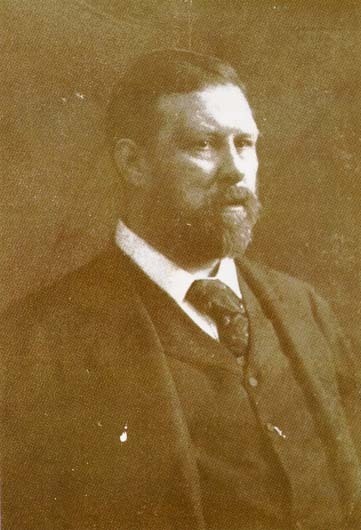 Today is Bram Stoker's birthday. The man who modernized the vampire myth and created the gold standard for vampire stories was born on Nov. 8, 1847. Why not celebrate by getting a loved one a vampire novel? Or perhaps some vampire apparel?
Today is Bram Stoker's birthday. The man who modernized the vampire myth and created the gold standard for vampire stories was born on Nov. 8, 1847. Why not celebrate by getting a loved one a vampire novel? Or perhaps some vampire apparel?
In other news:
I would never subscribe to so-called men's magazines like Maxim or Playboy. But from the images Mark Frauenfelder has been posting on BoingBoing, I would be first in line to buy True Men Stories magazine.
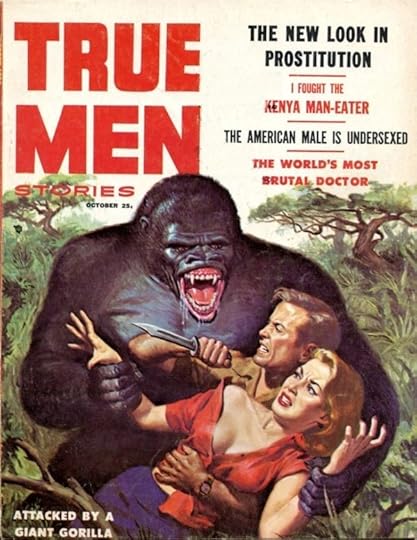
LA Times journo fesses up to screwing with his neighbor over parking. Not sure if this is the sort of thing you want to advertise on your blog. (Via LA Observed.)
Really interesting, well-written take on the BBC's new version of Sherlock Holmes at the Awl.
Just in case you were wondering: the rich are different. A Colorado district attorney has decided not to charge a money manager with a felony hit-and-run because he's worried it might cause the money manager some difficulty in his job. No, seriously, that's what he said: "Felony convictions have some pretty serious job implications for someone in Mr. Erzinger's profession, and that entered into it." Fortunately, being charged with a crime does not impact the job status of anyone else currently awaiting trial in Colorado's fifth judicial district. (Hilarious side note: the DA's motto is "The Office of the District will strive to always: Do the Right Thing, To the Right People, At the Right Time, For the Right Reasons." By the way, this is the same DA who managed Kobe Bryant's rape case. Just FYI.)





















